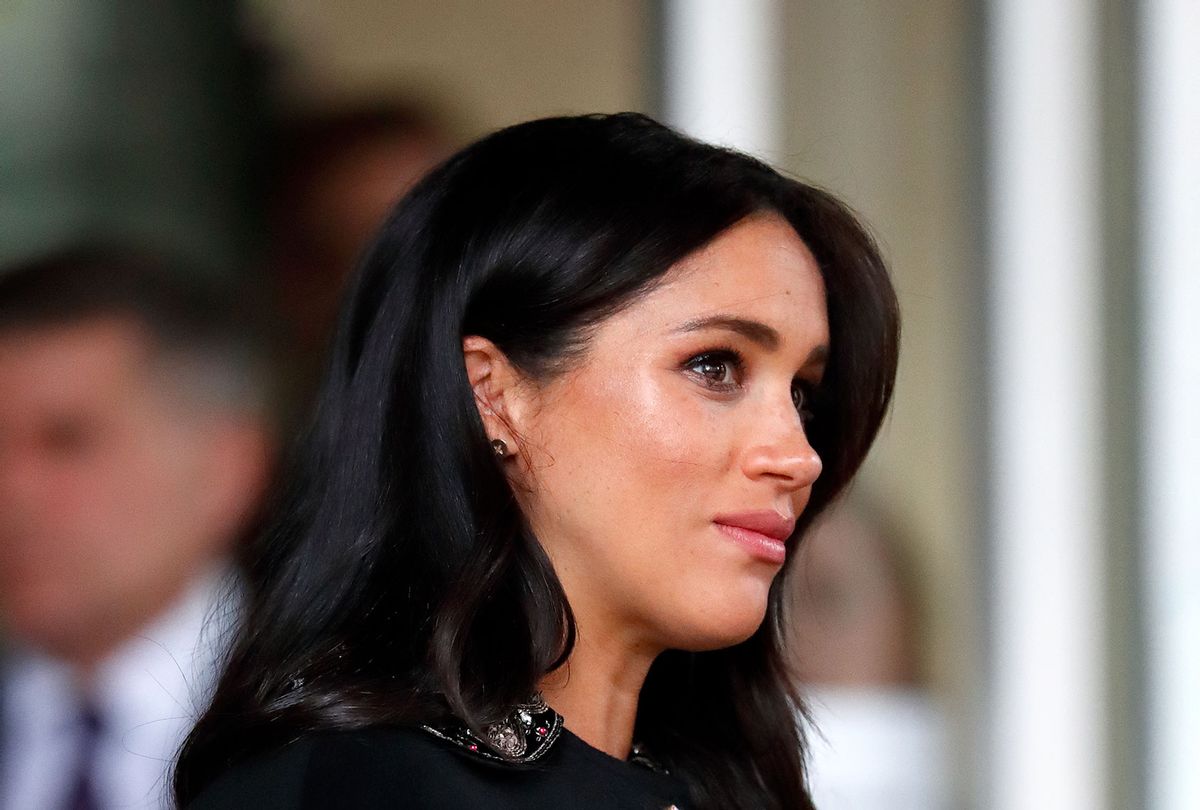In her now-viral interview with Oprah Winfrey on Sunday, Duchess of Sussex Meghan Markle opened up about her life after becoming part of England's royal family. Though commoners might imagine becoming a duchess would be akin to living through a Disney fairytale, Markle's experience was anything but; rather, her mood became downright depressive, she said. Markle told Winfrey that her isolation, false media reports about her, and a lack of support from the royal family led her to have suicidal ideation while she was pregnant with her son Archie Harrison Mountbatten-Windsor, now 22 months old.
"I realized that it was all happening just because I was breathing," Markle said in the interview. "I was really ashamed to say it at the time and ashamed to have to admit it to [Prince] Harry, especially, because I know how much loss he's suffered. But I knew that if I didn't say it, that I would do it. I just didn't want to be alive anymore. And that was a very clear and real and frightening constant thought."
Markle isn't alone in struggling with thoughts of suicide while pregnant. In fact, it's a silent — and growing — public health crisis. And Markle's interview may well help shed more light on what is by all accounts a festering social issue.
According to a study published in JAMA Psychiatry in November 2020, the prevalence of suicidal thoughts nearly tripled between 2006 and 2017; researchers surveyed 595,237 who gave birth in that span. The biggest increases were seen among Black women, those in low-income socioeconomic brackets, younger individuals, and those who had mental health conditions like anxiety and depression.
Specifically, researchers looked at data from the Maternal Behavioral Health Policy Evaluation (MAPLE) study to examine suicidality trends among people between the ages of 15 and 44 in the year before and after birth; 2,683 of 595,237 either had suicide ideation or tried to harm themselves. The overall increase went from 0.2 to 0.6 percent, which health experts said could translate to 24,000 individuals of the nearly 4 million who give birth a year.
"The increases and disparities in suicidality over time, and the likelihood that suicidality is both under detected and under treated remains concerning," said senior author Kara Zivin, Ph.D., in a media statement. "This research indicates we have more policy and clinical work to do to support struggling women and their families."
Suicide is one of the leading causes of maternal deaths in the United States, according to the JAMA study's researchers. It is also the second leading cause of death among women between the ages of 25 and 34 years. Health experts fear the numbers are underreported, hence the lack of awareness of this public health crisis.
"Most estimates of maternal mortality only report deaths caused by complications of childbirth, such as stroke, preeclampsia, or hemorrhage," Kimberly Mangla, MD, a reproductive psychiatrist at Columbia University Vagelos College of Physicians and Surgeons, said in an interview about maternal suicides. "Yet pregnancy does not protect against depression and substance abuse, and the postpartum period has been identified as a particularly vulnerable time."
In Markle's case, she attests that she reached out for help, but did not receive it. Therapists and mental health professionals have since emphasized that first responses really matter when it comes to people reaching out.
"Denying someone treatment who is significantly depressed and a potential harm to themselves can be extremely damaging because it plays into depressive and suicidal thoughts like, 'the world is a dangerous or sad place' and 'the future looks bleak,'" Jason Moser, Ph.D., a professor of psychology at Michigan State University, told Prevention.
Recently, public health experts have been discussing how doctors can look for signs of depression in expecting and postnatal mothers.
"There's an increased risk of mood disorder exacerbation shortly before and after delivery and of depression onset within the first year postpartum," Kimberly Mangla, MD, a reproductive psychiatrist at Columbia University Vagelos College of Physicians and Surgeons, said. "Extended surveillance through obstetric clinics, collaboration of obstetricians and mental health providers and adherence to screening guidelines can increase recognition of these disorders in women."
Mangala also said that this public health crisis has gone under the radar for a number of reasons, one being the societal expectation that mothers should be "perfect and happy."
"As a society, I think we are disinclined to accept that during pregnancy and the postpartum period women can experience despair with a force that propels them towards suicide or accidental overdose," Mangala said. "But we know that up to 15 percent of pregnant and postpartum women experience depression." Mangala said that "major life transitions" like childbirth, coupled with a lack of sleep, are "huge risk factors" for mental illness.
As for the Duchess of Sussex, she says that she is in a much better place now.
"I'm still standing," she told Winfrey. Markle said that she hoped viewers would take from her story the knowledge that "there's another side . . . life is worth living."
If you are contemplating suicide, call the National Suicide Prevention Lifeline at 1-800-273-8255 (TALK) or go to SpeakingOfSuicide.com/resources for a list of additional resources.
Want more science stories in your inbox? Subscribe to Salon's weekly newsletter The Vulgar Scientist.



Shares